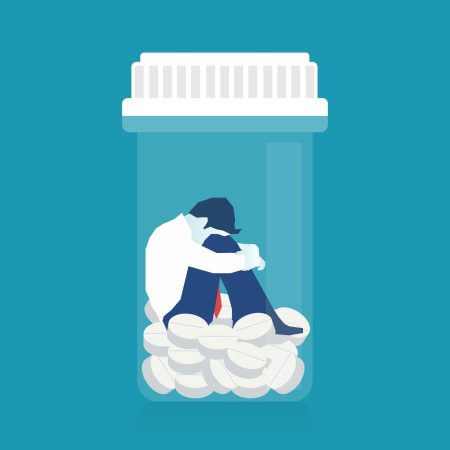The opioid crisis is at an all-time high, and problematic use only continues to rise. Studies show that the number of people using opioids climbs year after year as well as the number of deaths due to opioid overdose.1 Skyrocketing rates of substance abuse play a role in the worsening mental health crisis, too, as excessive drug and alcohol use has a detrimental impact on mental well-being.
How do opioids affect mental health? What are the effects of long-term opioid use? And what can you do if you or a loved one are struggling with your mental health or opioid abuse?
Risk Factors for Opioid Use
Substance abuse affects people of all ages, genders, economic statuses, and more. However, some people are more at risk for developing substance use disorders than others. Some of the risk factors for opioid use include:
- Poverty
- Job loss
- Stressful life circumstances
- Sudden loss of a loved one
- History of substance abuse in the family
- History of severe depression or anxiety
- History of a mental disorder
- History of criminal activity
- Spending time around high-risk individuals
- Living in a high-risk environment
- Participating in risk-taking or thrill-seeking behaviors

Research suggests that substance use disorders are the result of both genetic and environmental factors.2 The risk factors for opioid use listed above don’t necessarily mean someone will start using opioids, but chances are higher for people who meet some or a few of these conditions.
Effects of Long-Term Opioid Use
Sometimes people turn to substances because they feel uncomfortable. Opioids release a sudden rush of endorphins that leave people feeling calm, relaxed, and euphoric. Instead of developing healthy, lasting coping mechanisms, people who struggle with their mental health may turn to the quick relief of drugs and alcohol to manage or mask unpleasant feelings.
Unfortunately, what seems like a helpful solution at the start can trigger a quick downward spiral into addiction. Long-term opioid use causes the body to build a tolerance and require greater quantities over time. As tolerance increases, it causes an inverse effect on mental health.
Research shows that long-term opioid use significantly increases the chances of developing a major depressive disorder. One study showed that the greater the opioid dose, or the longer the duration of use, the greater the risk of depression.3 Left unchecked and untreated, opioid use can easily get out of control and require more intensive treatment.
Is Someone You Love Misusing Opioids?
Although long-term opioid use harms mental health, specialized drug and alcohol addiction treatment can help. Silver Pines Treatment Center is a mental health and substance abuse treatment program that provides individualized, restorative, and holistic support to help you build a solid foundation for recovery.
We offer multiple levels of care, including detox and intensive outpatient programs, so you can find the program that best suits your needs. If you’d like to learn more about our treatment services, call us at 267-719-8689 or submit an online contact form. Our admissions specialists will be in touch and help you find the best path for you.
References
- National Institute on Drug Abuse. (2023). Drug Overdose Death Rates.
- Psychiatric Clinics of North America. (2012). The Genetic Basis of Addictive Disorders.
- Missouri Medicine. (2014) Prescription Opioid Analgesics Increase Risk of Major Depression.



